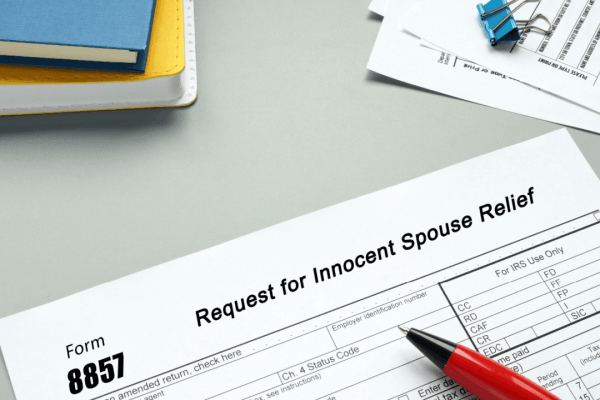
IRS Debt Expiration: When Does Tax Debt Go Away?
Understanding IRS Debt Expiration and the Statute of Limitations
IRS debt expiration refers to the period after which the IRS can no longer legally collect on a tax debt. This is governed by a statute of limitations that protects taxpayers from indefinite collection efforts. Understanding how this timeline works—and how it can be paused or extended—is crucial if you owe the IRS and want to avoid unnecessary payments or collection actions.
What Is the IRS Statute of Limitations on Debt?
The IRS generally has a 10-year window to collect unpaid taxes. This period is known as the Collection Statute Expiration Date (CSED).
The 10-Year Rule Explained
Once the IRS assesses your tax liability, the clock starts ticking. From that date, the agency has 10 years to collect the debt. After that point, the IRS must stop all collection efforts.
When the Clock Starts Ticking on IRS Debt
The expiration period begins on the date the IRS officially records or “assesses” the tax you owe, not when you file your return. This distinction matters because late filings or audits can affect your timeline.
Exceptions That Can Extend the Collection Period
Certain actions can stop or pause the 10-year clock, giving the IRS more time to collect. This includes things like bankruptcy filings, requesting installment agreements, or applying for an Offer in Compromise.
Events That Pause or Restart the Clock
Even though the 10-year statute is standard, many taxpayers unknowingly extend this period by taking certain legal steps.
Filing for Bankruptcy
When you file for bankruptcy, the IRS is prevented from collecting during the case. However, that pause doesn’t count toward the 10-year period, so the clock stops until your case concludes.
Submitting an Offer in Compromise
If you apply for an Offer in Compromise, the collection period pauses while the IRS reviews your request. If denied, the clock resumes, but the time lost during the review is added to the 10 years.
Leaving the Country for Extended Periods
If you’re out of the country for six months or more, the statute can be suspended. The IRS assumes it’s harder to collect when you’re overseas and adjusts the timeline accordingly.
How to Find Out When Your IRS Debt Expires
Knowing your Collection Statute Expiration Date (CSED) helps you make smart decisions about your tax situation.
Requesting IRS Account Transcripts
You can request your IRS account transcript online or by mail. These transcripts show when the tax was assessed and help you estimate the expiration date.
Understanding Your CSED
The CSED is the date when the IRS’s right to collect expires. If your debt is nearing that date, you may want to avoid taking any actions, like installment agreements, that could extend the period.
When to Seek Help from a Tax Attorney
If your situation is complicated or you’re unsure how actions may affect your expiration timeline, consult a tax attorney or enrolled agent. They can help you navigate safely toward expiration without restarting the clock.
What Happens After IRS Debt Expires
Once the statute of limitations expires, the IRS typically closes the case, but you should verify that your debt has officially cleared.
Can the IRS Still Collect?
Legally, the IRS cannot take enforced collection actions like wage garnishments or bank levies once the CSED has passed. However, errors in their records may require formal resolution.
Will Tax Liens Automatically Go Away?
No. Federal tax liens may remain on your credit report unless you request their release. You must work with the IRS to ensure liens are withdrawn or discharged after expiration.
How to Ensure the Debt Is Cleared Properly
You or your tax professional should monitor the CSED and request formal confirmation from the IRS. This helps ensure no collection attempts continue beyond the legal timeframe.
How to Protect Yourself as IRS Debt Approaches Expiration
If you’re close to your IRS debt expiration date, the best strategy is to avoid actions that could extend the clock. Don’t enter new payment agreements or make voluntary offers without first consulting a tax expert. Let the statute run out when possible—legally and strategically.
Find Out If Your IRS Debt Is Nearing Expiration
If you’re not sure how much time is left on your IRS debt expiration timeline, don’t guess. A licensed tax attorney can help you interpret your transcripts, understand your options, and avoid missteps that could restart the collection period. Contact us to protect your financial future and take control of your IRS debt today.
Frequently Asked Questions (FAQs)
1. How long does the IRS have to collect back taxes?
Generally, the IRS has 10 years from the date the debt is assessed.
2. Can the IRS extend the 10-year statute of limitations?
Yes. Certain actions, like bankruptcy or offer-in-compromise requests, can pause or extend the statute.
3. What is a CSED and how do I calculate it?
CSED stands for Collection Statute Expiration Date. You can calculate it by reviewing your IRS account transcript and adding 10 years from the assessment date.
4. What happens if I enter a payment plan?
An installment agreement may pause or restart the 10-year clock, especially if it’s renegotiated or defaulted.
5. Will the IRS notify me when the debt expires?
No. It’s your responsibility to track your expiration date and request confirmation of discharge if needed.
Key Takeaways
- IRS debt usually expires 10 years after the tax is assessed.
- Filing for bankruptcy or an Offer in Compromise can extend that timeline.
- The IRS must stop collections once the CSED has passed.
- Federal tax liens do not disappear automatically with debt expiration.
- Knowing your expiration date helps you avoid costly mistakes.
Free Tax Case Review
If you are struggling with tax debt or have received a letter from the IRS complete the form below.Advertising. This site is a marketing service and does not provide legal or tax advice. Submitting information does not create an attorney-client, tax professional-client, or any other advisory relationship. Results are not guaranteed. A list of participating attorneys, tax firms, and tax providers is available here.
IRS Audit
You received an audit notice from the IRS
Tax Debt Relief
You owe the IRS money and are looking for relief options
Wage Garnishment
The IRS is taking part of your wages to pay off your debt
Tax Lien
The IRS put a legal claim on your property
IRS Property Seizure
The IRS is going to take your property to pay down or pay off your tax debt
Penalty Abatement
You want to request to remove or reduce penalties assessed by IRS
Innocent Spouse Relief
Relief from joint tax debt caused by your spouse or former spouse
Tax Debt FAQ
Common facts, questions and answers about tax debt and tax debt reilef
Tax Debt Lawyer
A tax debt lawyer can help you with your tax debt problems
Recent Posts
- Who Is Eligible for Innocent Spouse Relief and How Does It Work?
- What is an Effective Tax Strategy for Married Couples
- What are the Proofs of Innocent Spouse Relief?
- What Form Do You Use for an Innocent Spouse? | Complete IRS Filing Guide
- What Are the Four Types of Innocent Spouse Relief? | Your Complete Guide



